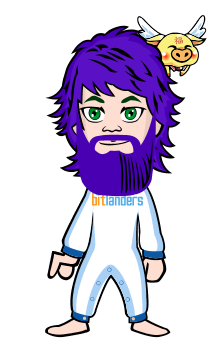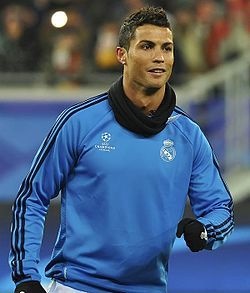
Cristiano Ronaldo dos Santos Aveiro, GOIH (born 5 February 1985), known as Cristiano Ronaldo (Portuguese pronunciation: [kɾɨʃtiˈɐnu ʁuˈnaɫdu]), is a Portuguese professional footballer who plays for Spanish club Real Madrid and the Portugal national team. He is a forward and serves as captain for Portugal. By the age of 22, Ronaldo had received Ballon d'Or and FIFA World Player of the Year nominations. The following year, in 2008, he won his first Ballon d'Or and FIFA World Player of the Year awards. He then won the FIFA Ballon d'Or in 2013 and 2014. In September 2015, Ronaldo scored his 500th senior career goal for club and country.[4]
Often ranked as the best player in the world[5] and rated by some in the sport as the greatest of all time,[6][7][8][9] in 2015 Ronaldo was named the best Portuguese player of all time by the Portuguese Football Federation, during its 100th anniversary celebrations. He is the first player to win four European Golden Shoe awards. With Manchester United and Real Madrid, Ronaldo has won three Premier Leagues, one La Liga, one FA Cup, two Football League Cups, two Copas del Rey, two UEFA Champions Leagues, one UEFA Super Cup and two FIFA Club World Cups.
Ronaldo began his career as a youth player for Andorinha, where he played for two years, before moving to C.D. Nacional. In 1997, he moved to Sporting CP. In 2003 he signed for Manchester United for £12.2 million (€15 million). In 2004, he won his first trophy, the FA Cup. In 2007 and 2008, Ronaldo was named FWA Footballer of the Year, and was named the 2008 FIFA World Player of the Year. In 2009 he won the FIFA Puskás Award for Goal of the Year. He was the world's most expensive player when he moved from Manchester United to Real Madrid in 2009 in a transfer worth £80 million (€94 million/$132 million). His buyout clause is valued at €1 billion.[10] In May 2012, he became the first footballer to score against every team in a single season in La Liga.[11] Ronaldo holds the record for most goals scored in a single UEFA Champions League season, having scored 17 goals in the 2013–14 season.[12] In December 2014, Ronaldo became the fastest player to score 200 goals in La Liga, which he accomplished in his 178th La Liga game.[13] He is the only player in the history of football to score 50 or more goals in a season on five consecutive occasions.[14] In September 2015, Ronaldo became the all-time top goalscorer in the UEFA Champions League, and in October 2015 he became Real Madrid's all-time leading goalscorer.
Ronaldo made his international debut for Portugal in August 2003, at the age of 18. He has since been capped over 100 times and has participated in six major tournaments: three UEFA European Championships (2004, 2008 and 2012) and three FIFA World Cups (2006, 2010 and 2014). He is the first Portuguese player to reach 50 international goals, making him Portugal's all-time top goalscorer. He scored his first international goal in Euro 2004 and helped Portugal reach the final. He took over captaincy in July 2008, and he led Portugal to the semi-finals at Euro 2012, finishing the competition as joint-top scorer. In November 2014, Ronaldo became the all-time top scorer in the UEFA European Championship (including qualifying) with 23 goals.
Club career
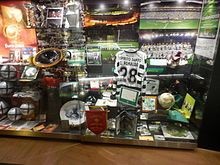
Ronaldo joined Sporting's other youth players who trained at the Academia Sporting, the club's football academy, in Alcochete. He became the only player ever to play for Sporting's under-16, under-17, under-18, B-team, and the first team, all within one season.[23] He scored two goals in his league debut on 7 October 2002, which Sporting CP won 3–0 against Moreirense, while featuring for Portugal in the 2002 European Under-17 Championship.[24]
At the age of 15, Ronaldo was diagnosed with a racing heart, a condition that might have forced him to give up playing football. The Sporting staff were made aware of the condition and Ronaldo's mother gave her authorisation for him to go into hospital.[25] While there, he had an operation in which a laser was used to cauterise the area of his heart that was causing the problem. The surgery took place in the morning and Ronaldo was discharged from hospital by the end of the afternoon; he resumed training only a few days later.[26] At the age of 16, the club's Romanian manager László Bölöni promoted Ronaldo from the youth team and gave him the chance of a professional debut. He declared that he had to deal with the impressive number of dribbles that Ronaldo was doing.[27]
In November 2002, Ronaldo was invited to Arsenal's training ground, London Colney to meet manager Arsène Wenger and his coaching staff.[28] Wenger, who was interested in signing the midfielder, had arranged to meet Ronaldo's representatives, Formation (who suggested the player originally to Gérard Houllier, then Liverpool manager, and Joan Laporta, then Barcelona president) in the subsequent months to discuss a transfer arrangement.[29][30] Of a possible move to Liverpool, Ronaldo said "Liverpool are one of the best clubs in England and it would be a dream for any player to represent a club of such traditions".[31] However, he came to the attention of Manchester United manager Alex Ferguson in the middle of 2003, when Sporting defeated United 3–1 in the inauguration of the Estádio José Alvalade in Lisbon. Ronaldo's performance impressed the Manchester United players, who urged Ferguson to sign him.[32] In April 2013, Sporting honoured Ronaldo by selecting him to become the 100,000th member of the club.[33]
Player profile
Style of play
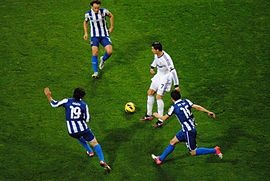
Cristiano Ronaldo plays an attacking role, most often playing as either a striker,[473] or as a winger,[474] and is known in particular for his finishing, pace, dribbling, crossing and ability on free kicks.[209][475] He is able to play on either wing as well through the center of the pitch, making him a versatile attacker, capable of playing in any offensive position.[476] From a tactical standpoint, he usually plays in a free role, often drifting from the left wing into the centre when moving off the ball.[477] Ronaldo is known to be mentally sharp, with good vision and positioning, often predicting certain plays; he also possesses quick reactions, opportunism, balance, and agility.[477] Although right-footed, he is also able to control the ball, cross, and finish well with his left foot.[477]
Ronaldo is known for his technical skill, control and dribbling ability, as well as his flair in beating players during one on one situations.[473] A prolific goalscorer, he is able to finish well both inside the area and from distance with an accurate and powerful shot.[209][478] He is also an accurate penalty kick and set piece specialist, who is renowned for his powerful, bending free kicks.[479] His height, strength, jumping ability and heading technique have given him an edge in winning aerial challenges for balls, with many of his goals often being headers.[473][480] He is also known for his stamina, and in particular, his great pace and acceleration, both with and without the ball; in 2014 he was named one of the fastest football players in the world.[481]
Following his arrival at Manchester United, Ronaldo underwent a major body transformation, from a slender youth to an athletically built adult. His well-built, muscular body type allows him to retain possession of the ball.[482] Some figures in football, such as Mike Clegg (former Manchester United strength and conditioning coach) and French great Zinedine Zidane, have praised Ronaldo's work ethic and dedication to improvement on the training field.[483][484] His drive and determination is fuelled by a desire to carve his name in history alongside footballing legends such as Pelé and Diego Maradona,[485] but he has also stated that he would rather be remembered as a role model than one of world football's best players.[486]
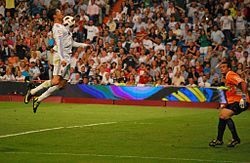
Ronaldo has also undergone several tactical evolutions throughout his career. While at Sporting Lisbon, and during his first season at Manchester United, in his youth, he was deployed as a traditional winger, on the right side of midfield, although he would occasionally drift into the centre or switch onto the left wing. In this position, he was able to use his pace, agility, quick feet, and technical skills to take on opponents in one on one situations, often displaying creativity and an array of tricks and feints, such as stepovers; after beating defenders on the wing, he would subsequently play accurate curling crosses into the penalty area.[473] He often undertook individual dribbling runs during his youth.[477] Despite his talent, he was also criticised at times by manager Alex Ferguson, team mates and media for being selfish or overly flamboyant.[487][488] During the next few seasons, however, Ronaldo developed into more of a team player, and his work-rate, strength, and ability to find the net with more consistency improved drastically on the left wing, where he was able to participate in build-up plays, and move into the centre to take shots on goal, after beating defenders. He also began to play a more creative role for his team, functioning as a playmaker at times due to his vision and passing ability.[477] During the 2006–07 season, he managed 19 assists in all competitions.[489] In his final seasons at Manchester United, he began to play an even more prolific, attacking, and central role, playing both as a striker and as a supporting forward, or even as an attacking midfielder on occasion.[477]
Ronaldo in action with Portugal in 2012
At Real Madrid, Ronaldo continued to play a more offensive role for his team, shown by his record breaking goalscoring feats, while his creative and defensive duties became more limited.[477] He also became a more efficient and consistent player at Real Madrid where he was also able to excel due to their counter-attacking style of play.[490] While he was initially deployed as a centre-forward, he was later moved back onto the left wing, but in a free tactical role, which made it harder for defenders to track his runs Into the penalty area, allowing him to find the back of the net more often.[491][492]

